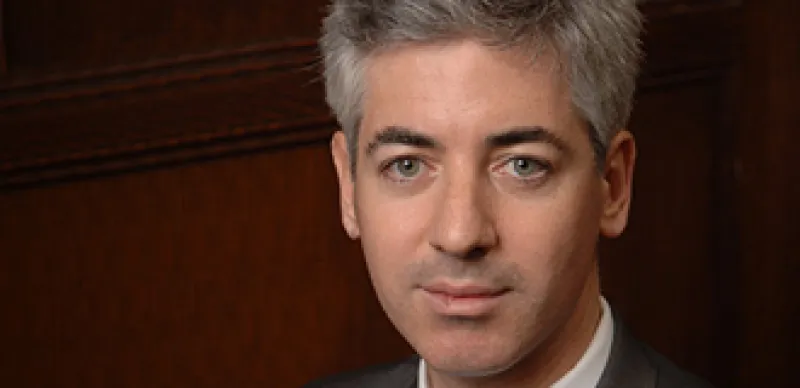Real estate is in hedge fund manager William Ackman’s DNA. His grandfather and great-uncle started a real estate investment firm in Manhattan in 1926. Today known as Ackman-Ziff Real Estate Group, it is chaired by Ackman’s father, Lawrence. As founder and CEO of $5.8 billion Pershing Square Capital Management (also based in Manhattan), Ackman, 44, often engages in real estate arbitrage: taking a position in a company whose stock price does not fully reflect the value of the underlying property.
This technique may turn out to be the source of the most lucrative trade in the history of Pershing Square — or that of any other firm. At the nub of it is General Growth Properties, the Chicago real estate concern that owns or manages some 200 shopping malls. Begun in 1954, General Growth filed for Chapter 11 in April of last year. After the ’08 market meltdown froze the commercial-mortgage-backed loan market, the company couldn’t refinance its debt.
Pershing Square had already begun amassing an equity stake in General Growth by late 2008, when obvious signs of distress had driven the company’s stock down to the 35- to 50-cent range from a high of more than $65 in mid-2007. At the time of bankruptcy, Ackman owned or controlled (through derivatives) 19.9 percent of General Growth’s equity.
Ordinarily, of course, equity holders dread Chapter 11, because shares are the first to be written off. Ackman, however, contended that General Growth’s property holdings — the shopping malls — were worth much more than the stock. He calculated the true value of the shares at $10 to $30. In fact, he argued, the real estate would not only make creditors whole but also make the equity holders rich.
So convinced was Ackman that the company’s plight represented a huge bargain that Pershing eagerly led a group willing to put up interim debtor-in-possession financing when General Growth filed for bankruptcy. They stipulated, however, that the loan carry warrants that could be converted into shares when General Growth emerged from bankruptcy. And although the bankruptcy court approved the Pershing group’s $375 million DIP proposal, it was later rejected in favor of a $400 million DIP deal put forward by a rival consortium spearheaded by San Francisco–based hedge fund Farallon Capital Management. The Farallon loan’s main draw: No warrants.
Nevertheless, Ackman remains keen on warrants. In March, Pershing Square joined Toronto-based Brookfield Asset Management and Miami-based Fairholme Capital Management in pledging $6.5 billion of new equity capital to General Growth in the guise of what would become a stalking-horse bid for the company (that is, one meant to start off bidding). As part of the deal, which was equal to $15 per share, the consortium was to receive 120 million warrants worth $519 million. Enter (or reenter) Simon Property Group, the Indianapolis-based developer with its own mass of malls.
In February, Simon had offered to buy General Growth for $9 a share, but the offer was rejected. Simon came back with a fresh bid on what it said were the same terms as the Brookfield-Fairholme–Pershing Square offer — but without the warrants kicker. Backing Simon with a $1 billion investment was high-profile hedge fund manager John Paulson, whose New York–based, $32.1 billion Paulson & Co. holds General Growth paper. Other hedge funds also chipped in.
General Growth, however, still preferred the Brookfield group’s bid. One reason was antitrust qualms, according to court documents. Team Brookfield did sweeten its offer. The warrants will vest over a staggered period, and Pershing Square dropped its interim warrants. And the strike price of the warrants postbankruptcy was raised from $10 to $10.50 for Pershing and Fairholme and $10.75 for Brookfield.
In mid-May the court okayed the Brookfield offer, though General Growth will be open to bids through July. Simon swears its last offer was final. Even if a higher bid prevails, the warrants must be paid. And as of mid-May, General Growth was trading at $15. Ackman stands to make a 2,500 percent-plus return on his initial equity investment. That’s quite a successful bargain hunt.






